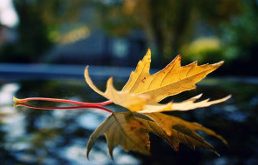 Hadhrat Mufti Muhammad Rafee` Uthmani daamat barakaatuhum writes regarding Hadhrat Moulana Yaseen Sahib rahmatullahi alaih, the father of Mufti Muhammad Shafee` Sahib rahmatullahi alaih:
Hadhrat Mufti Muhammad Rafee` Uthmani daamat barakaatuhum writes regarding Hadhrat Moulana Yaseen Sahib rahmatullahi alaih, the father of Mufti Muhammad Shafee` Sahib rahmatullahi alaih:
During his final illness, in spite of being afflicted with severe bouts of diarrhoea and high fever, he would walk to the Musjid with the support of his walking stick. When eventually this became unmanageable he was forced to perform his Salaah at home for about five to six days.
During that period, he once mentioned to his son Mufti Muhammad Shafee` Sahib rahmtullahi alaih: ‘Shafee`! It seems that I will pass away on account of this diarrhoea. However, I am not grieved by this, for the Hadeeth has counted this as a form of shahaadat (martyrdom).’ It was the time of Maghrib on a Thursday night when his condition had seriously deteriorated. It seemed that he was on the throes of death. At that time my respected grandmother addressed my father: ‘Don’t go to Musjid to perform your Maghrib Salaah. Read your Salaah at home.’ This ardent lover of jamaat Salaah in this pitiful state told my father: ‘No. Go to the Musjid.’ Accordingly, my beloved father executed his instruction. The next morning at the time of subh saadiq he awakened my father saying: ‘Hurry up. I have to clean myself. My namaaz should not be made qadhaa.’ After cleaning him and changing his clothing he said: ‘Lift me up so that I could make wudhu.’ As my respected father lifted him, he noticed that his limbs were motionless and his eyes were raised to the sky. His condition had suddenly changed. After being made to lie down he felt at ease and in this state he began to engage in zikr, toubah and istighfaar etc. Then all of a sudden he told my grandmother: ‘Rasul maqbool Sallallahu alaihi wa sallam…’ This was all that could be heard clearly. He said a few other words which seemed to be ‘tashreef laaye (has come).’ The pangs of death had begun. He began reciting the kalimah until his voice subsided, but his tongue was still in motion. Eventually there was total silence and the reality of his constant du`aa materialised:
جب دم واپسیں ہو یا اللہ – لب پر ہو لاالہ الا اللہ
“O Allah! When the time approaches for my soul to return
Allow my lips to be engaged in reciting La ilaaha illallah”
(Hayaat-e-Mufti A`zam, p. 22)
 Ihyaaud Deen An Effort to Revive Deen in Totality
Ihyaaud Deen An Effort to Revive Deen in Totality
